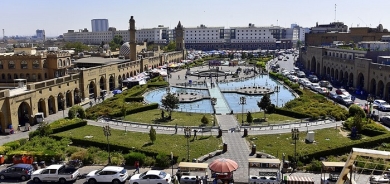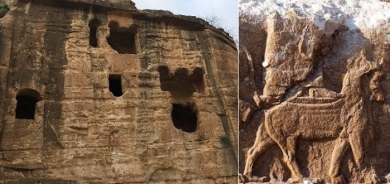Britain summons Syrian envoy over journalists’ deaths in Homs

“On the foreign secretary’s instructions, the Syrian ambassador to London, Sami Khiyami, was summoned to the Foreign and Commonwealth Office this afternoon to see the political director, Geoffrey Adams,” a statement said.
U.S. journalist Marie Colvin and French photographer Remi Ochlik died when 11 rockets hit a building where they were staying, and freelance French journalist Edith Bouvier was in a critical condition in a poorly equipped field hospital.
But Syrian authorities said they were not aware that the two Western journalists had even entered the country, said Information Minister Adnan Mahmud.
“The authorities had no information that the two journalists had entered Syrian territory,” he told AFP.
In the wake of the deaths, France has said it holds Syria responsible for the safety of its citizens there, Foreign Minister Alain Juppe said on Wednesday..
Juppe said that a Syrian army ceasefire in order to give rapid access to humanitarian aid was “imperative,” adding that the response by the Syrian government to the wounding of a second French journalist who was reportedly in danger of dying from her wounds was insufficient.
“This situation is horrific,” Juppe told reporters. “France holds the Syrian authorities responsible and accountable for the lives of our citizens, for the lives of our injured.”
A witness told Reuters by phone that shells hit the house where the journalists were staying and a rocket hit them as they were escaping.
Both were veteran reporters of wars in the Middle East and elsewhere.
The two were killed when a shell crashed into a makeshift media center set up by anti-regime activists in Baba Amro district, under siege since Feb. 4, activist Omar Shaker told AFP from the area.
He said three other foreign journalists were wounded.
Baba Amro neighborhood in Homs has been under army shelling for about 20 days.
Marie Colvin was a correspondent for the British Sunday Times for over 20 years. Known as an intrepid war reporter, Colvin covered conflicts in Balkans, East Timor, Palestine, Israel, Chechnya, Iraq and Sri Lanka where, in 1999, she lost her left eye while covering the island’s civil war.
She received the British Press Award for best foreign journalist in 2010.
Only a day before her reported death Colvin appeared in a video on BBC talking about the harrowing shelling in Homs, according to The Huffington Post.
In a ceremony last year to honor journalists killed while reporting, she spoke about the dangers of reporting from conflict zones.
“Our mission is to report these horrors of war with accuracy and without prejudice.”
“We always have to ask ourselves whether the level of risk is worth the story. What is bravery, and what is bravado?”
“Journalists covering combat shoulder great responsibilities and face difficult choices. Sometimes they pay the ultimate price.”
Ochlik, a war photographer, was born in France in 1983 and first covered conflict in Haiti at the age of 20. Most recently he photographed the revolutions in Tunisia, Egypt and Libya before moving to Syria.
Ochlik, who founded his own photo agency, has won several international awards during his short career. His photos have been published in worldwide publications and magazines such as Le Monde Magazine, VSD, Paris Match, Time Magazine and The Wall Street Journal.
Video broadcast from Homs showed the bodies among the rubble, one with its legs severed by shrapnel.
Activists in Homs told Reuters that other foreign journalists were wounded. One was named as British photographer Paul Conroy. Another, a female American journalist, is in a very serious condition, they said.
“Up to this point we have two dead. They are still under the rubble because the shelling hasn’t stopped,” an activist in Homs named Omar told Reuters. “No one can get close to the house.”
“There is another American female journalist who is in a really serious condition, she really needs urgent care,” Omar added. The house was hit by more than 10 rockets, he said.
Pro-opposition areas of Homs have been under a sustained bombardment from government forces since Feb. 3. Several hundred people have been killed, activists say.
The Syrian conflict is especially dangerous for journalists to cover as opposition and rebel forces are for the most part bottled up in enclaves. Last week New York Times reporter Anthony Shadid died of an asthma attack while trying to reach an opposition zone.
French television reporter Gilles Jacquier was killed in Homs last month as a shell exploded amid a group of journalists covering protests in the city on a visit organized by the Syrian authorities.
The European Union and Russia on Wednesday condemned the “tragic” killing of the journalists, while the United States said it was “another example of the shameless brutality” of the Syrian regime, State Department spokeswoman Victoria Nuland told AFP.
British Prime Minister David Cameron paid tribute to Colvin, who was in her mid-50s, at his weekly questions session in parliament, describing her as “talented and respected.”
Media tycoon Rupert Murdoch, who owns the Sunday Times, said in an email to staff that the company was doing all it could to recover Colvin’s body.
(Reuters)














